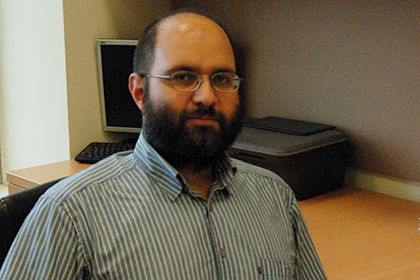The theory of finite fields has a long tradition in mathematics. Originating from problems in number theory (Euler, Gauss), the theory was first developed purely out of mathematical curiosity. For a long time, this theory was used exclusively in pure mathematics, in areas such as number theory, algebraic geometry, group theory, and so on, without any relevance to applications. The situation changed dramatically with the development of modern information technologies. Finite fields were recognized to provide a natural framework for a wide variety of applications, particularly in information transmission and data security.
The research areas of the Algebra, Number Theory and Combinatorics Group at Sabancı University include several aspects of the theory of finite fields, in particular, algebraic varieties and curves over finite fields, finite geometries, and their applications to coding theory, the generation and analysis of pseudorandom numbers, as well as integer partitions and q-series.
Current Research Topics
Algebras:
Non-associative division algebras, finite semifields.
Arithmetic of Finite Fields:
Permutation polynomials, polynomial factorisation.
Coding Theory:
Cyclic and quasi-cyclic codes, algebraic geometry codes, asymptotically good codes, maximum distance separable codes (MDS codes), maximum rank distance codes (MRD codes).
Combinatorial and Homological Methods in Commutative Algebra
Combinatorial Commutative Algebra (monomial and binomial ideals, toric algebras and combinatorics of affine semigroups, Cohen-Macaulay posets, graphs, and simplicial complexes), homological methods in Commutative Algebra (free resolutions, Betti numbers, regularity, Cohen-Macaulay modules), Groebner basis theory and applications.
Computational Number Theory
The arithmetic of elliptic and hyperelliptic curves, rational points on smooth planar curves, Gaussian hypergeometric series and character sums, arithmetic dynamics over finite fields and number fields.
Cryptology:
Sequences and stream ciphers, cryptographically significant functions (bent, plateaued, almost perfect nonlinear), secret sharing schemes.
Enumerative Combinatorics and Applications:
Integer partitions, permutations and permutation statistics. Basic hypergeometric series and their identities. Bijective and sieve methods, combinatorics of partially ordered sets.
Function Fields and Curves over Finite Fields:
Rational points, maximal curves, towers of function fields, automorphisms, modular curves, Drinfeld modular curves.
Geometry:
Finite geometries, projective planes, incidence geometry, geometry of tensors, algebraic varieties, linear sets (field reduction), (classical) polar spaces.







